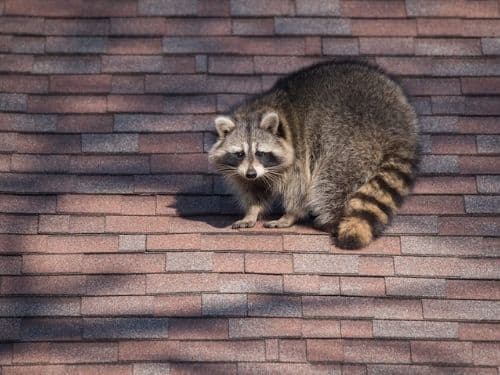Yes obviously. Raccoon feces are extremely dangerous if touched with bare hands, ingested or inhaled. Raccoons and raccoon feces are carriers of diseases and pests that can not only be contracted by pets, but also by humans.
And if you have the misfortune of having a raccoon infestation in your house or in your attic, then you will also have the misfortune of having their droppings lying around the house. One of the most dangerous things about a raccoon infestation is their feces. If in nature raccoons often use a single area to leave their droppings, areas that are called raccoon latrines, when they invade a home they leave urine and feces everywhere. Consequently, the risk of fecal contamination of the entire home is very serious. Call us for professional raccoon removal and cleaning services in Kitchener.
Here are some of the most dangerous diseases that raccoons carry through their feces:
- Roundworms: These are parasites that do not harm raccoons, but that can damage humans and other animals a lot, so much so that they can cause neurological damage and even death. These are parasites that are excreted in the feces of raccoons in the form of eggs, which are also extremely resistant to temperatures. The danger lies in the fact that once the feces have dried, these eggs can float in the air and therefore can easily infect a human being who touches raccoon feces or who breathes in their vicinity. Within a week these parasites can cause serious damage by attacking the central nervous system like blindness, coma or death.
- Giardiasis: Disease carried by the flagellated parasite Giardia that can also infect humans. Again, the parasite’s eggs are found in the raccoon’s stool and, if contracted, the disease can cause abdominal cramps, nausea, diarrhea and severe dehydration.
- Salmonella: Raccoon feces can also contain salmonella bacteria, which can easily penetrate humans by touching the animal’s feces. The danger of these bacteria is that they can remain dormant for a long time in a dry environment, and then arrive in a favorable environment, infect you and cause serious symptoms such as high fever, severe diarrhea and abdominal pain.
Consequently, the simple cleaning of an area infested with raccoons is not enough, real decontamination is necessary, to be performed in a workmanlike manner:
- The excrement must be collected manually. The professionals use vacuum cleaners for small excrement, but the rest must be collected by hand. The broom must not be used because it risks dispersing feces, bacteria and parasites particles into the air.
- If infected with urine and feces, the insulation must be thrown away and replaced. In addition to being damaged, in fact, it may contain parasite eggs or various types of bacteria. A risk to your health.
- Use a special spray to disinfect the place after cleaning, so as to eliminate fungi and bacteria.
- Remember not to touch your hands with bare hands or to breathe freely in a place infested with raccoon feces.
- A professional will know how to perfectly decontaminate an area from raccoon’s feces and urine. For your safety and health, it is best to rely on them for a job like this.

